The 7 Best Books You've Never Read
Underrated books that deserve a place on your shelf
When people talk about “the classics,” the same titles always rise to the surface. The Iliad, The Divine Comedy, The Odyssey, maybe War and Peace. These are the mountains on the horizon of literature — works that are so large and immovable that they define the whole landscape.
But the canon is more than its monuments. It is a living tradition made up of books that are read and re-read, books that shaped the way people thought in their own time, and books that still have something to say to us now. Some of these are overlooked simply because they live in the shadow of more famous works. Others are less known outside their own countries. Still others are read only by specialists, when in truth they belong to everyone.
The reward of exploring these overlooked classics is that you discover different voices and different ways of thinking. You see authors experimenting, trying out themes that will later be refined. You encounter ideas in raw form, before they were polished into slogans. And most of all, you come away with the sense that literature is bigger and stranger than you thought.
Here are seven such works worth your attention…
Don’t forget to join our FREE book club!
We started a digital book club to study the great texts of Western Civilization — from Dante to Dostoevsky — together. Inside, you’ll get:
Live community book discussions (bi-weekly)
New, deep-dive literature essays every week
The entire archive of book reviews + our 100 great texts reading list
Our first discussion on Don Quixote takes place on August 19 at 12pm EST!
Sign up below to attend — all paid members can join the live discussion up on stage…
Note: paid subscribers via Substack will automatically receive an access link for the live calls.
1) Euripides, The Bacchae
When you think of Greek tragedy, it is usually Aeschylus or Sophocles who dominate the conversation. Agamemnon, Oedipus Rex, Antigone. But Euripides’ The Bacchae stands apart as one of the most disturbing works of the ancient world.
At its heart is the god Dionysus, returning to Thebes to prove that he is divine. The king, Pentheus, refuses to acknowledge him and tries to impose order, reason, and authority on a force that cannot be contained. What follows is a slow unraveling, ending in madness and horror, as Pentheus is torn apart by his own mother in a frenzy of Dionysian ecstasy.
It is a play about the limits of human control — about what happens when we deny the irrational and ecstatic parts of life. Even today, it forces us to ask whether reason can ever fully master passion, or whether civilization is always haunted by the forces it tries to suppress.
2) Cicero, On Duties (De Officiis)
Cicero is remembered as the greatest orator of Rome, but his philosophical writings are where his mind is most clearly on display. On Duties is a remarkable little book, written as a guide for his son, and it stands as one of the clearest statements of Roman moral philosophy.
The work is practical, even blunt at times. It wrestles with questions that every person in public life must face: What is honorable? What is useful? And what happens when the two seem to be in conflict? Cicero insists that true usefulness can never be separated from virtue — that dishonorable actions will always, in the end, destroy those who commit them.
Though it is over two thousand years old, On Duties feels oddly contemporary. It is a book about how to live with integrity in a corrupt world, how to balance ambition with honor, and how to hold on to principle when the temptation to compromise feels overwhelming. In many ways, it is as relevant to modern politics and business as it was to the Roman forum.
3) St. Augustine, Confessions
There are many ways to read Augustine’s Confessions. You can approach it as philosophy, as theology, as literature, or as the first great autobiography in the West. However you come at it, the book is astonishing in its intimacy.
Augustine lays bare his soul, writing with unflinching honesty about sin, ambition, lust, pride, and ultimately grace. He recounts his restless search for truth — moving from pagan philosophy to heretical sects to the final embrace of Christianity. At the same time, he frames his entire story as a prayer, addressed to God. This makes the Confessions less a book for readers than a direct act of worship, one in which the reader is invited to join.
What makes it a classic is not just its theological depth, but its humanity. Augustine is not a distant saint but a man who struggled with the same temptations we do. He lets us see that the interior life — the hidden drama of the soul — can be just as dramatic as any epic battle.
4) François Rabelais, Gargantua and Pantagruel
Rabelais is one of the strangest writers in the Western canon. A Renaissance doctor and monk, he created a sprawling series of novels about the giants Gargantua and his son Pantagruel. On the surface, they are comic tales, filled with bawdy humor, grotesque exaggerations, and endless digressions. But beneath the laughter lies a deep satire of human folly.
No institution is safe from Rabelais’ mockery — not scholastic philosophers, not pompous lawyers, not corrupt priests. At the same time, his work is overflowing with joy and vitality. He believed in the goodness of laughter, in the freedom of the human spirit, and in the possibility of learning that delights rather than oppresses.
To read Rabelais is to enter a world that is at once crude and profound, chaotic and wise. It is not an easy read, but it shows you the comic spirit that shaped European literature — the sense that humor can be a weapon against tyranny and a reminder of our shared humanity.
5) Miguel de Cervantes, Don Quixote
It is almost impossible to overstate the importance of Don Quixote. Published in two parts in 1605 and 1615, it is often called the first modern novel — and with good reason. Cervantes takes the medieval world of knights, chivalry, and romances and turns it on its head. His protagonist, the aging Alonso Quixano, reads so many books about gallant knights and noble quests that he decides to become one himself. He renames himself Don Quixote, puts on rusty armor, and rides forth on his decrepit horse, convinced that inns are castles, windmills are giants, and prostitutes are noble ladies in disguise.
At first glance, the book is a comedy, and it remains one of the funniest works ever written. The pairing of Don Quixote with his earthy, practical squire Sancho Panza is one of literature’s great duos — one representing idealism pushed to madness, the other embodying the rough wisdom of common sense. But as the story unfolds, the humor gives way to something more profound. Don Quixote is ridiculous, yes, but he is also noble. His refusal to accept the world as it is becomes a kind of heroism, even if it constantly leads him into disaster.
Cervantes understood that human beings live caught between reality and imagination, between the world as it is and the world as it should be. Don Quixote dramatizes that tension with unmatched brilliance. To read it is to laugh, but also to recognize yourself in the figure of a man who insists on living by ideals, even when those ideals no longer fit the world around him. That is why the book has endured for four centuries, inspiring everyone from Dickens to Dostoevsky to Flaubert. It is not only the first modern novel — it remains, in many ways, the greatest.
6) Alessandro Manzoni, The Betrothed (I Promessi Sposi)
Few novels are as important to a nation as Manzoni’s The Betrothed is to Italy. Written in the 19th century but set in 17th-century Lombardy, it tells the story of two lovers, Renzo and Lucia, who struggle to marry in the face of tyranny, war, and plague.
The book is both a sweeping historical epic and a deeply personal love story. At the same time, it is infused with Manzoni’s Catholic faith, which frames the trials of the characters as part of a larger story of providence. For Italians, it became a symbol of national identity — a work that helped shape their language and their sense of themselves as a people.
Outside of Italy, The Betrothed is less known, but it deserves a wider audience. It is a book about resilience in the face of suffering, about love tested by disaster, and about how even in the darkest moments, grace can break through.
7) Goethe, Wilhelm Meister’s Apprenticeship
When Goethe published Wilhelm Meister’s Apprenticeship, he essentially invented a new genre: the Bildungsroman, or novel of education. It is the story of a young man who sets out to find himself, moving through the worlds of theater, philosophy, and love, until he arrives at a deeper understanding of his purpose.
The book feels modern in a way few 18th-century novels do. It is not about knights or kings, but about an ordinary person searching for meaning. It is about false starts, disillusionments, and the long, slow process of maturity. Writers from Dickens to Joyce would later imitate its structure, but Goethe was the first to show how a novel could capture the making of a soul.
What makes it a classic is not just its influence, but its honesty. It understands that growing up is never straightforward — that we learn through mistakes, detours, and disappointments. In that sense, Wilhelm’s story is everyone’s story…



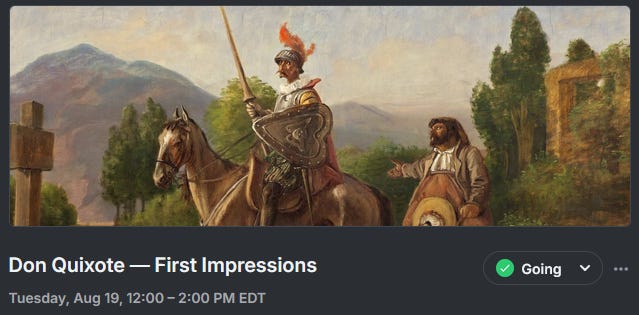

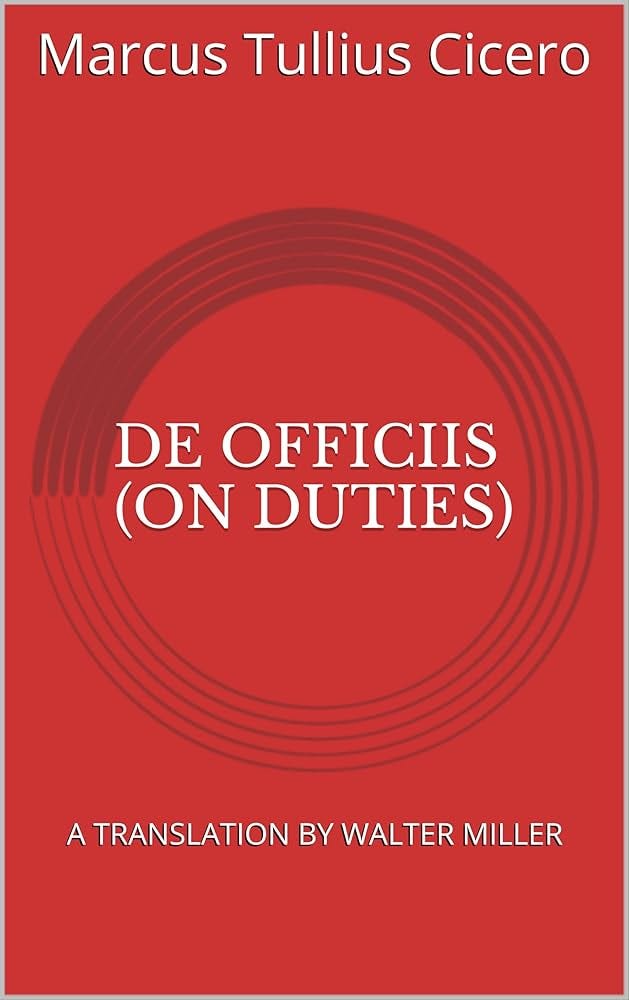
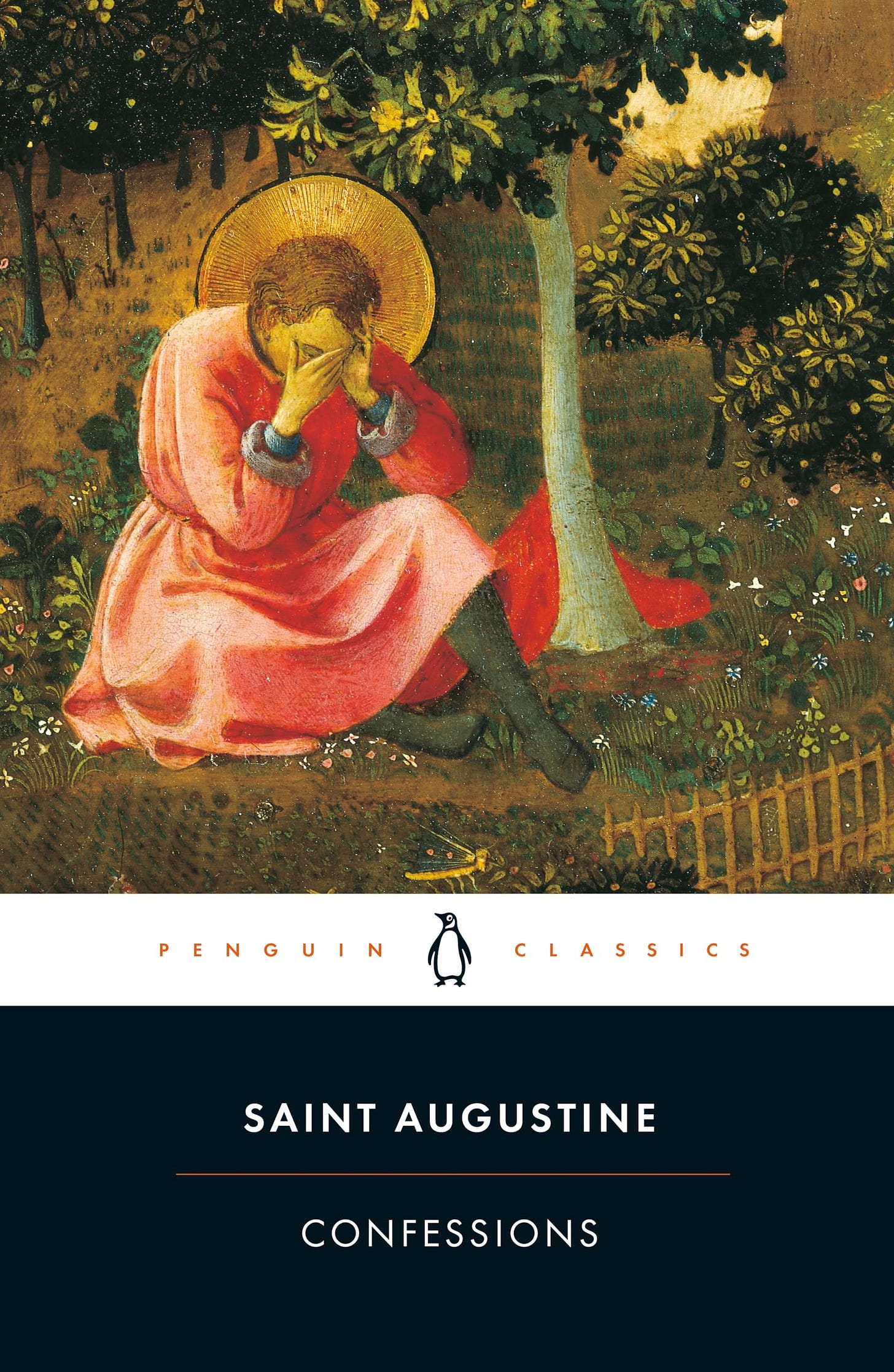
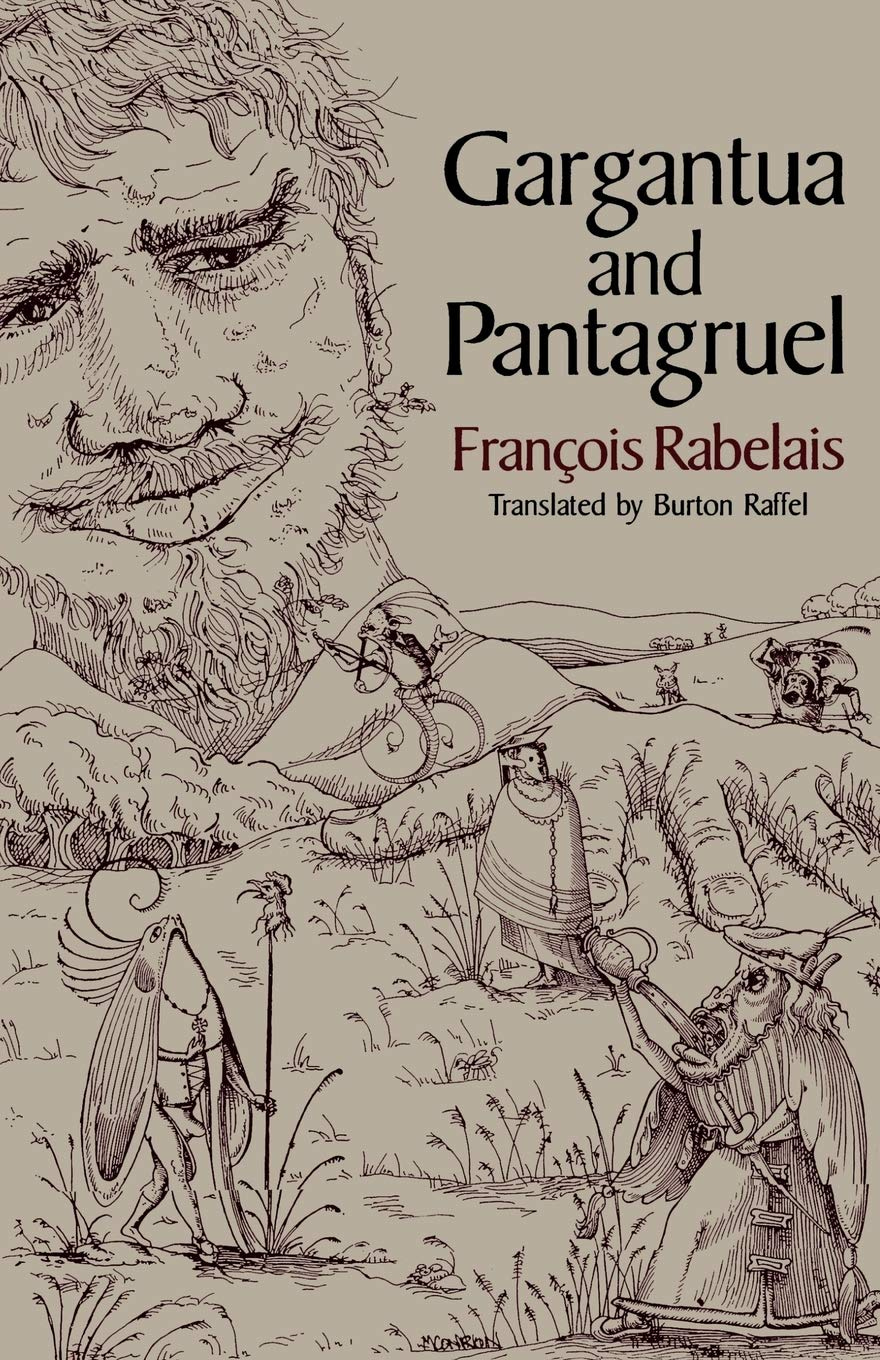


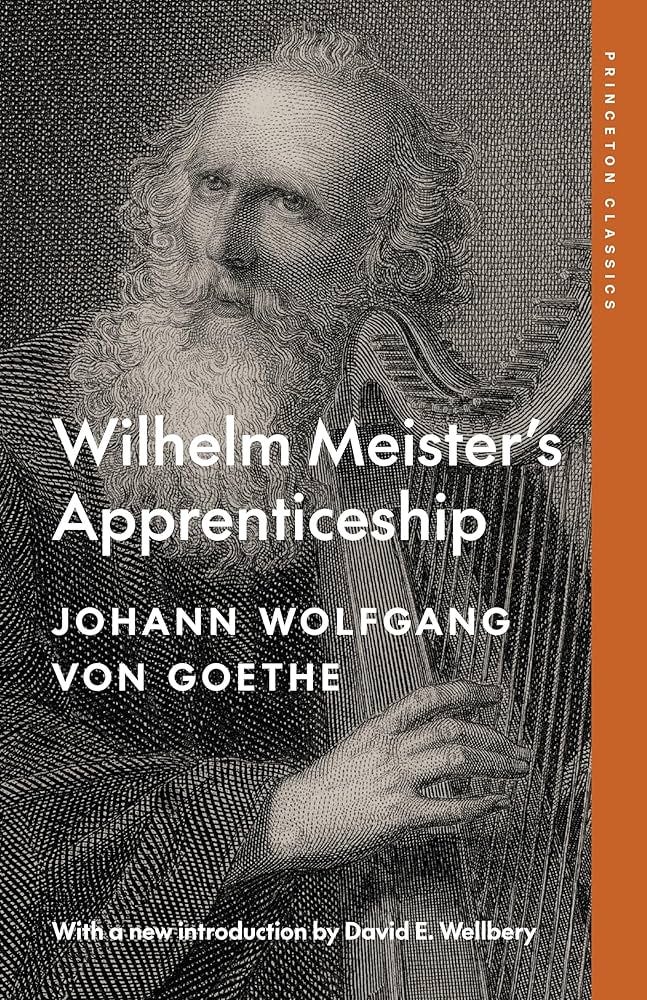
Excellent list, thank you.!!
Brilliant! I’ve got a few on my shelf already. Now I’ve got the impetus to dust them off and read them. Thank you!